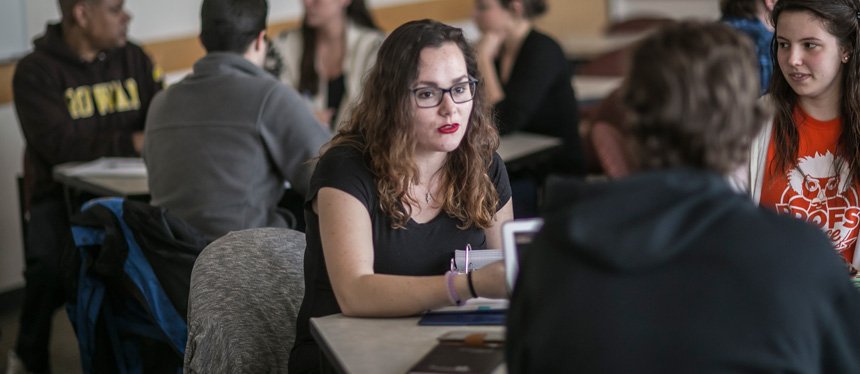Model Diplomacy Programs
Model Diplomacy Programs
Model Diplomacy Programs
Overview
The College of Humanities and Social Sciences supports course-based student participation in two Model Diplomacy Programs: The International Model African Union and the National Model United Nations.
These courses are primarily aimed at students majoring or minoring in a discipline or interdisciplinary program within the College of Humanities and Social Sciences. However, they are open to students in other colleges, and may be of interest to students in the College of Business, College of Communications and Creative Arts, and the College of Education, and College of Engineering.
These courses an excellent experiential learning opportunity, where students will learn about:
- the mechanisms and the overall process of international multilateral diplomacy and policy making;
- the international organizations being modeled (the African Union and the United Nations), their history, the principles underpinning their creation and operation, their structure, and their rules of procedure;
- the countries students will be representing at the model;
- drafting and negotiating diplomatic agreements.
Beyond these subject-specific skills, participation in models also gives students an opportunity to.
- travel, meet and network with other interested students from universities across the US and throughout the world;
- engage with problems of human rights, development, peace and security, justice and conflict resolution, environmental sustainability, and a range of social and cultural matters;
- hone written and oral communication skills across a number of registers;
- learn research, problem solving, and negotiating processes involving complex organizational and human relations.
Both courses are offered each year during the Spring Semester, and include travel to and accommodations in Washington, DC (Model AU) or New York City (Model UN).
Admission into the courses is determined by an application, which is available in the Fall Semester before Spring registration.
Details
Model AU (AFST 11350)
This is an eight-week accelerated hybrid format course that meets in the first half the Spring term, typically with several scheduled in-person meetings.
Students will have the opportunity to represent one of the member states of the African Union. Students will learn about that state’s history, socioeconomic and political development, and contemporary challenges; and they will write papers and resolutions that reflect the IMAU’s assigned topics in several committees: (1) committee on democracy, governance and human rights; (2) committee on economic matters; (3) committee on social matters; (4) committee on pan-Africanism and continental unity; and (5) committee on peace and security. Students will also study the role, structure, and activities of the African Union, as well as the economic, social, environmental and political-security issues facing African countries. The high point of the semester is the three-day conference in Washington, D.C., a required course component.
The International Model African Union conference takes place in Washington, D.C., in late February, and all students who are selected for this course must attend and participate fully in the conference. Travel expenses, hotel accommodations, and food will be covered through generous financial support from the CHSS Dean’s Office. However, students may have to share a room. Students will be responsible for incidental/personal expenses.
For more information about the conference, see: https://modelafricanunion.org/
This course is offered by Africana Studies. Please note that we can accept return participants--and students with IMAU experience may apply for leadership roles in the model.
Model UN (IS 25350 or POSC 07370)
This is a semester-long, in-person course offered in the Spring Term.
Students will have the opportunity to act as members of a delegation representing a specific country at the United Nations. They will conduct research on the country’s challenges and achievements, its relations with other countries, its history, and its goals for the future; they will learn about the structures, committees, and procedures of the United Nations; and they will write position papers and resolutions reflecting the assigned country’s priorities. The high point of the semester is the National Model United Nations (NMUN) conference in New York, a required course component.
The National Model United Nations conference takes place in New York City in Late March and Early April, and all students who are selected for this course must attend and participate fully in the conference. Travel expenses, hotel accommodations, and food will be covered through generous financial support from the CHSS Dean’s Office. However, students may have to share a room. Students will be responsible for incidental/personal expenses.
For more information about the conference, see: https://www.nmun.org/conferences/new-york.html
This course offered by International Studies and cross-listed with Political Science, so you can earn course credit in either discipline. It can be used as a concentration elective for International Studies majors, and can count toward the International Studies minor. Please note that we can accept return participants (and we value their experience).
Spring 2024 Details
Model AU
The course runs from January 16-March 11, 2024, with fin person meetings Thursdays from 11:00 am to 1:45 pm on January 18, February 8 and 15, and March 7.
Rowan will represent Mali.
The International Model African Union conference takes place in Washington, D.C., from February 22-25, 2024 (we will depart on the evening of February 21).
Model UN
The course runs throughout the Spring semester, meeting on Wednesdays from 2:00-4:45 pm.
Rowan will represent Montenegro.
The National Model United Nations Conference B takes place in New York City from April 1-5, 2024.




